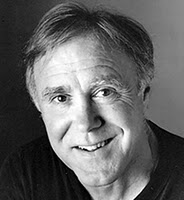Robert Hass is the author of many books of poetry, including The Apple Trees at Olema; Time and Materials, which won the National Book Award and the Pulitzer Prize; Sun Under Wood; Human Wishes; Praise; and Field Guide, which was selected by Stanley Kunitz for the Yale Younger Poets Series. He has co-translated several volumes of poetry with Czeslaw Milosz, most recently Facing the River, and is author or editor of several other collections of essays and translation. Hass served as Poet Laureate of the United States from 1995 to 1997 and as a Chancellor of The Academy of American Poets from 2001 to 2007. He lives in California with his wife, poet Brenda Hillman, whom you may find in our podcast archive, and he teaches at UC Berkeley.
Hass read from his work on October 20, 2011, in Cornell’s Goldwin Smith Hall. This interview took place earlier the same day.










